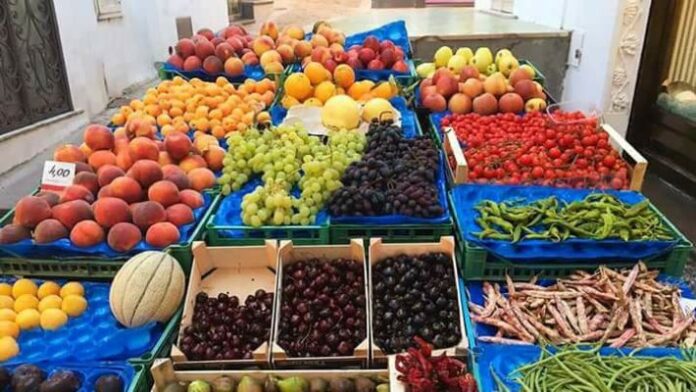A new cooling system that preserves vegetables and fruits twice longer than they normally last without preservation has been unveiled to help, especially female market vendors in Uganda reduce wastage and increase their income.
The system which comes as a result of collaboration between African Women Agribusiness Network (AWAN) in collaboration with German Agency for International Cooperation or (GIZ) puts preservation at a week where the market vendors usually have to throw away their produce after two days.
According to Geraldine Kyomuhangi, a market vendor at Ntinda new market, the system has so far been effective.
She said her clients prefer fresh vegetables and fruits. Before the cooling system was put in place, she said a lot of her merchandise would go to waste.
“We are happy for bringing us the fridge. I trust our merchandise will not go bad because we can re-stalk overnight. We shall now have fresh watermelons, pineapples, and broccoli, among others,” she said.
This comes at a time the United Nation’s Food and Agriculture Organization (FAO) reports that across African countries including Uganda, the vast majority of food loss happens between harvest and the point of sale, with less waste by consumers after purchase.
According to Bringo Fresh, a Uganda-based company that connects farmers and buyers, in Uganda, 10 million tonnes of fresh produce valued Ugx 16 billion goes to waste annually. This large number would be able to provide food for the 23 million lower-income Ugandans who lack proper nutrition.
Stationed at Ntinda Stretcher market with over 80 per cent women in the vegetable and fruit section, the system which is solar-powered with a capacity of three tonnes cools at 12 degrees.
More investment
Because the cooler is relatively smaller as compared to the number of the vendors’ demand, the women are now asking the government to put more investment in order purchase a bigger unit system.
“Women dealing in fruits are so many and that system is small. We ask the government to add more money to purchase a bigger one,” said Kyomuhangi.
The AWAN chairperson, Joyce Atuhaire said they were inspired to build the system after conducting a baseline in different markets in Kampala in which they found out that losses happen majorly at the market level and they are at 30 per cent.
Akilis Karungi, an official from GIZ, said this kind of technology should be stretched to areas without high-grid cooling systems. This initiative, he said, will empower more women.









